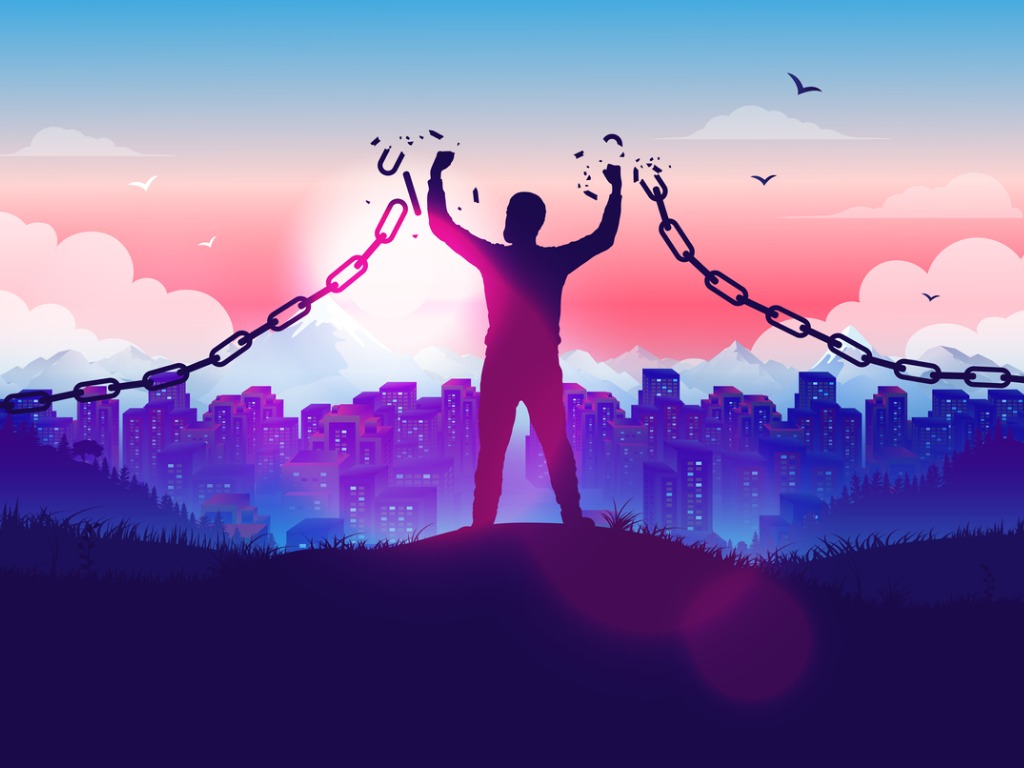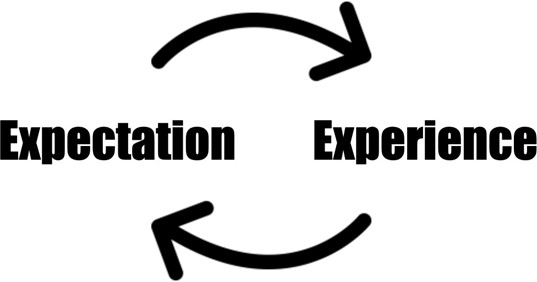
Use the Expectation – Experience Loop to learn and grow says Jason Liem
Finally, we have reached 2021. It’s a fresh canvas. I want to start painting it with optimistic expectations. Unfortunately, the turbulence of 2020 has left me somewhat doubtful. I find that, as hard as I try, I can’t shift my gears into full optimism. For me, my expectations for the new year are a mixture of trepidation and positive expectation.
The past year derailed me, as it did for most of the world, and forced me to become a tourist in my own life. I’ve had to take account of those things I’ve lost and also those things that I’ve gained. As much as I would like to have rewound and replayed parts of 2020, that thinking is a waste of energy.
The sense of certainty and the sense of autonomy are two pillars the brain requires to feel stable. The last year rattled both of these psychological posts and left many of us shaken and unsure. To some degree, a sense of normalcy has returned, and we can see this all around us. People have found their unique ways to navigate this new territory.
A rough experience can reshape our expectations for the future. As a result, we become more cautious and rethink our actions. We slow things down and consider how we move forward. This is a good thing.
When it becomes a bad thing is when being cautious turns into being overcautious. It’s when rethinking becomes overthinking. When this happens, it means we believe what happened to us yesterday will happen to us again tomorrow. We believe the past is a crystal ball to the future.
As we migrate further into 2021, I think it is prudent for us to be aware of our expectations, because they influence our thoughts, feelings and actions. One approach is to explore the expectation – experience loop.
What is an Expectation?
An expectation is the degree of probability that something will occur.
An optimistic narrative leads to an optimist’s expectation. This puts us into a mental state of looking forward or anticipating something. This same logic plays out if we subscribe to a pessimistic narrative. Then the future will tend to look bleak with limited possibilities and muted colours.
The superficial advice we often get is to change how we look at things. “Look at the positive side and think glowing affirmations”. I can tell you from my own experience, it is easier said than done. When I find myself in a deep hole, it’s going to take a little more than simply shifting my thinking. If I want to remove the weight off me, I’m going to need more leverage than the weak, skinny arms of positive thinking.
What is an Experience?
An experience is the knowledge or practical wisdom gained from what we have observed, encountered, or undergone. It is the experience that has the momentum and strength to shake me out of my doldrums. Experience is life’s raw and authentic lessons with no filters.
An experience is like the weather, there is no good or bad. It’s just an experience. What makes it good or bad is the meaning each of us assigns to it.
Two people can undergo an identical experience. One person will wish it never happened but is willing to learn from it to grow and develop. They are willing to try again so they can adapt, learn and evolve. The second person will also wish it never happened but will take nothing from the lesson. They will shut it away and avoid any similar situation in the future.
It’s never easy moving into a difficult situation. But it is one of the surest ways I know that will put my expectations to the test. It doesn’t mean I have to go full throttle into the hairiest of experiences to learn. Rather, I can take the time to observe, reflect and then choose my approach.
I find the best place to start is with low-hanging fruit. These are situations where the consequences are minor if it goes sideways. But it also allows me to learn from the experience. As my confidence grows, then I will up my game and try for something more challenging.
The Expectation – Experience Loop
Let’s say I present you with a mason jar full of jellybeans. Then I ask you to guess their number. You would examine the jar, consider the size of the jellybeans and then do some mental mathematics.
More than likely, you won’t guess the correct amount. One way of correcting your estimate would be to pour the jellybeans out and to count them. Only then would you know how close your estimate came to the actual number.

As we have explored, our expectation of an upcoming situation is an estimate of what we think is going to happen. Our experience informs us how close our expectation was to what occurred. The space between expectation and experience is where the learning happens. It is also where a person chooses what they will do with that lesson. Will they embrace the lesson, or will they ignore it?
How to Embrace Experience to Shape Expectation
Step One
An experience provides a lot of learning input, but that is only half of the process. To come full circle, it is incumbent on us to turn the input into an output. That is, we want to translate what we have learned into action. We can do this in three ways:
Reflect
After learning something, ask yourself: What are the takeaways? How can I apply these insights to my life? These types of questions help to land the learning and to reshape our expectations.
If we had a positive experience, then we can ask ourselves: What went well and how can we repeat it? If an experience didn’t go as planned, then we can explore the ways we can improve for the next time.
Implement
Once we have collected our insights, the next step is to implement them. We want to turn those lessons into things we can act on. Learning without implementation leads to a phenomenon called the “Illusion of Competence”. This is where you think you have mastered the knowledge or material, but you haven’t.
Share
Another way is to share what you have learned with others. When I am excited about something I’ve learned I want to tell someone about it. I find it difficult sometimes to explain it in a way that is understandable for the other person. At the same time, I see where my knowledge flows and where there are gaps.
Step Two
Our expectations are a combination of how we think and feel things are going to turn out. What is typical for most of us is to fuel our expectations with worry. Then we accept them as unassailable truths. As a result, we don’t question our expectations, and instead, we act on them.
We can’t prevent worried-filled thoughts and emotions from springing into our minds. It is going to happen. Instead, we can interpret those negative thoughts and emotions as information and data.
Think to when the fuel or battery indicator in your car lights up. You consider the information presented to you and decide on a course of action. Do you fill up at the next station or do you have enough to get to where you are going?
We can do the same with our thoughts and emotions. We can observe and reflect on the information and then choose our response. This is a more desirable direction than the traditional route of accepting them as unquestionable truths and blindly reacting to them.
Step Three
Psychological resilience is something we can all strengthen. To do this, resiliency requires us to take ownership of how we focus our attention.
It is too easy for us to focus on all the doors that have closed, and all the opportunities lost. This is not to deny any of this, but it does beg the question, how does focusing on the downside help us in the long run?
If we are to push through turbulent times it requires us to feel a level of certainty and autonomy. One of the best ways to do this is to make a decision and to take concrete action to move things forward.
It is actually in the doing that we take back control and create certainty. Sometimes it will be two steps forward and then one step back. The experience teaches us to adapt our tactics to find another way forward. Over time, our experience shapes our expectations to be more constructive and forward-focused.
Conclusion
2020 forced us all to become tourists in our own lives, and I think that is a good thing. It has jolted us awake and to take account of what we have and don’t have in our lives. More importantly, this abrupt wake-up call begs the question: How will each of us choose to meet 2021?












